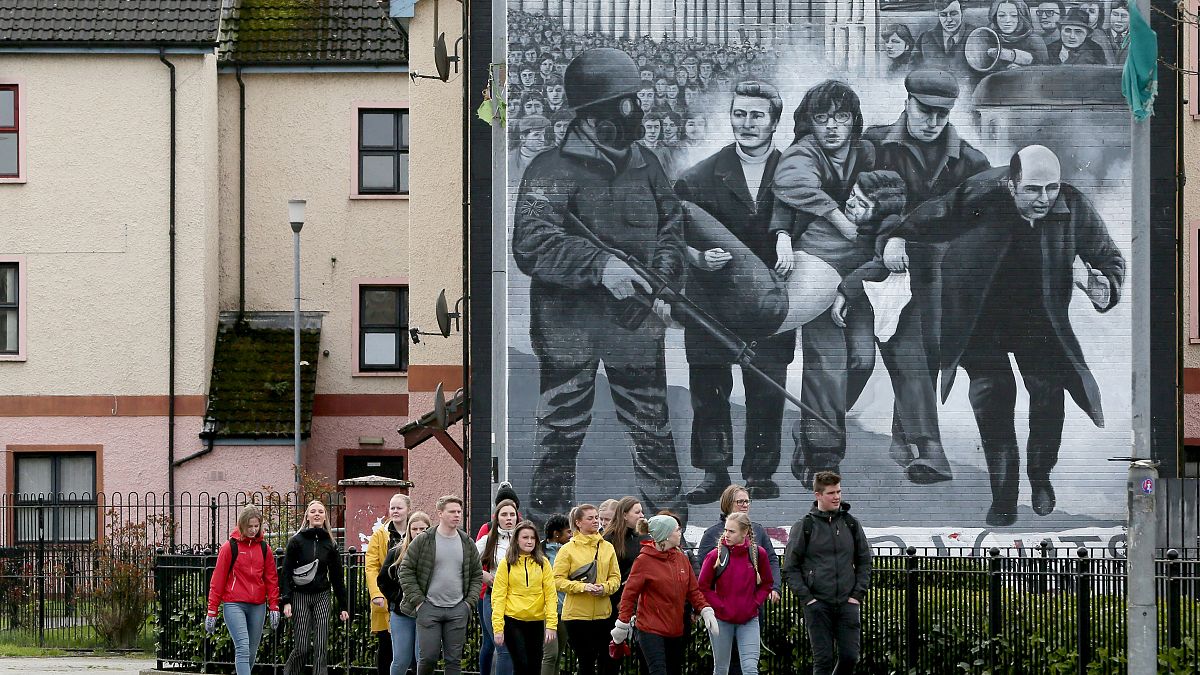Prosecutors decided there was little chance of convictions in two cases where unarmed civilians were killed by the army during Northern Ireland's sectarian conflict.
Prosecutors have dropped cases against two former British soldiers accused of murder during Northern Ireland's decades-long sectarian conflict.
Both cases involved shootings in 1972 in the city known as Londonderry to UK unionists, and Derry to Irish nationalists.
One army veteran, referred to as Soldier B, was accused of murdering 15-year-old Daniel Hegarty, who was shot twice in the head in July of that year. The case also related to the wounding of his cousin, Christopher.
The teenager was killed during an army operation to clear a housing estate of militants. An inquest in 2011 found that he had posed no risk to soldiers and was shot without warning.
The other veteran, identified only as Soldier F, faced charges relating to the "Bloody Sunday" killings in January 1972. He was accused of two murders relating to the deaths of William McKinney and James Wray.
Thirteen people were killed and another 15 were wounded when the British army's Parachute Regiment opened fire on civil rights protesters in a mainly Catholic area of the city's Bogside neighbourhood.
A public inquiry said those who were shot were unarmed and had posed no threat to the military.
Bloody Sunday was a pivotal moment in Northern Ireland's "Troubles", the fury felt over the event spurring many to join the IRA terrorist group.
The conflict which lasted for 30 years began in the 1960s when Northern Ireland's minority Catholic community protested against discrimination, and the British army were deployed to quell trouble.
The protests in 1972 were against a law allowing indefinite detention without trial.
Earlier this year the trial in Belfast of two other British soldiers charged with murdering an IRA member also collapsed after the court ruled that statements they made were inadmissible.
Families of the victims who have long sought justice were told at a meeting with prosecutors on Friday that in the light of the previous two cases, there was no longer a reasonable prospect that Soldier B or Soldier F would be convicted either. It's thought that key evidence was again going to be ruled inadmissible.
The families issued a statement condemning what they called a damning indictment of the British justice system. Des Doherty, the lawyer for Daniel Hegarty's family, deplored the decision to drop charges.
"You can get away with the murder of a child if you're in the British army because the state will always protect you. The state will subvert the legal system and use it to their advantage, and they've done so in the past. And then the illegitimate will be legitimised by the PPS (Public Prosecution Service) and the courts in the present day," he told reporters.
However, in other circles there has also been sympathy for the soldiers who have faced years of investigations.
Former army veterans minister Johnny Mercer called it a tragic case. "Another Veteran’s life ruined. Investigated, dropped, investigated, dropped, charged, dropped. This Government’s shame highlighted in another tragic case - for all sides," he tweeted.
The decisions mean further prosecutions over the events of the early 1970s in Northern Ireland are unlikely. The UK government has plans to restrict historical prosecutions by imposing a time limit concerning offences committed before the 1998 peace accord known as the Good Friday Agreement.


